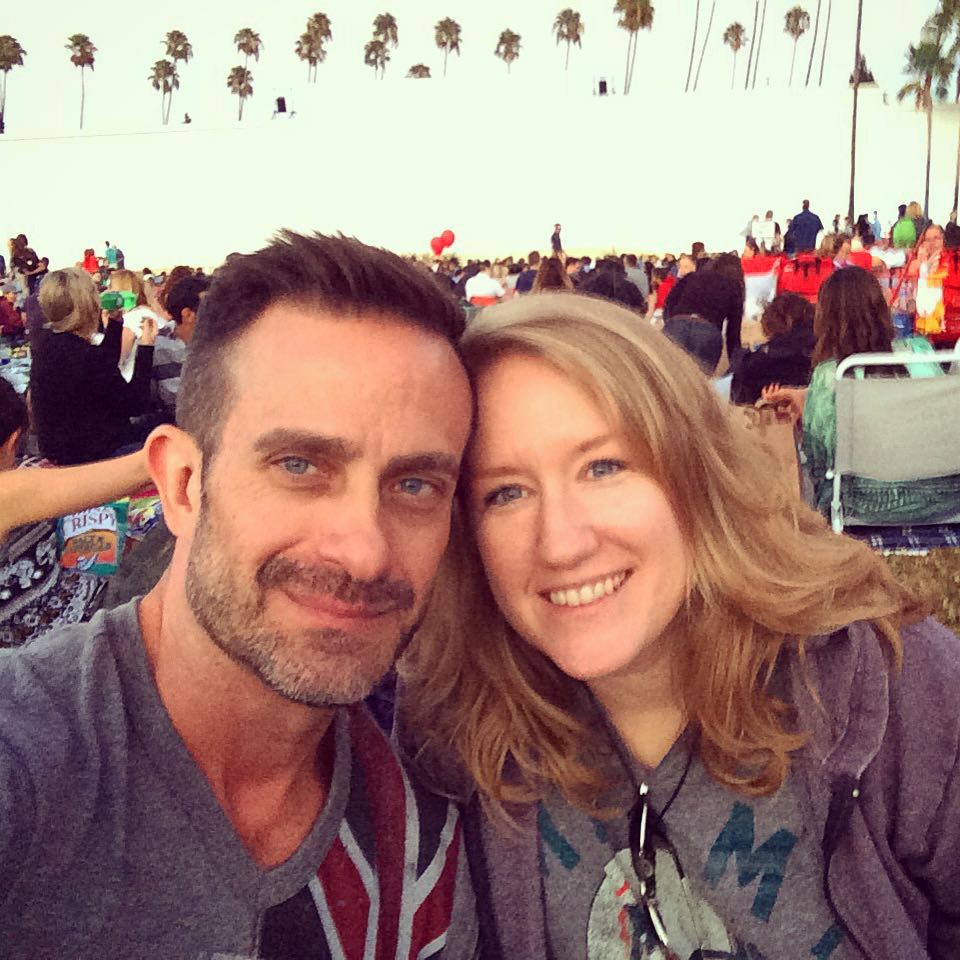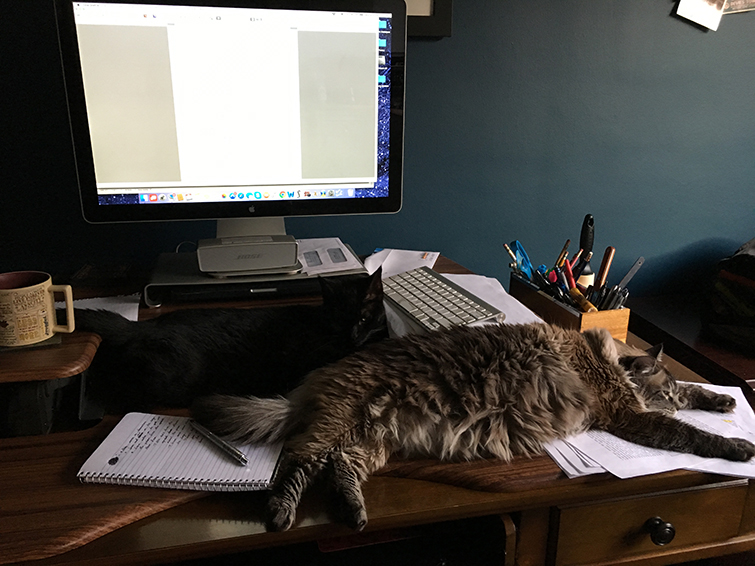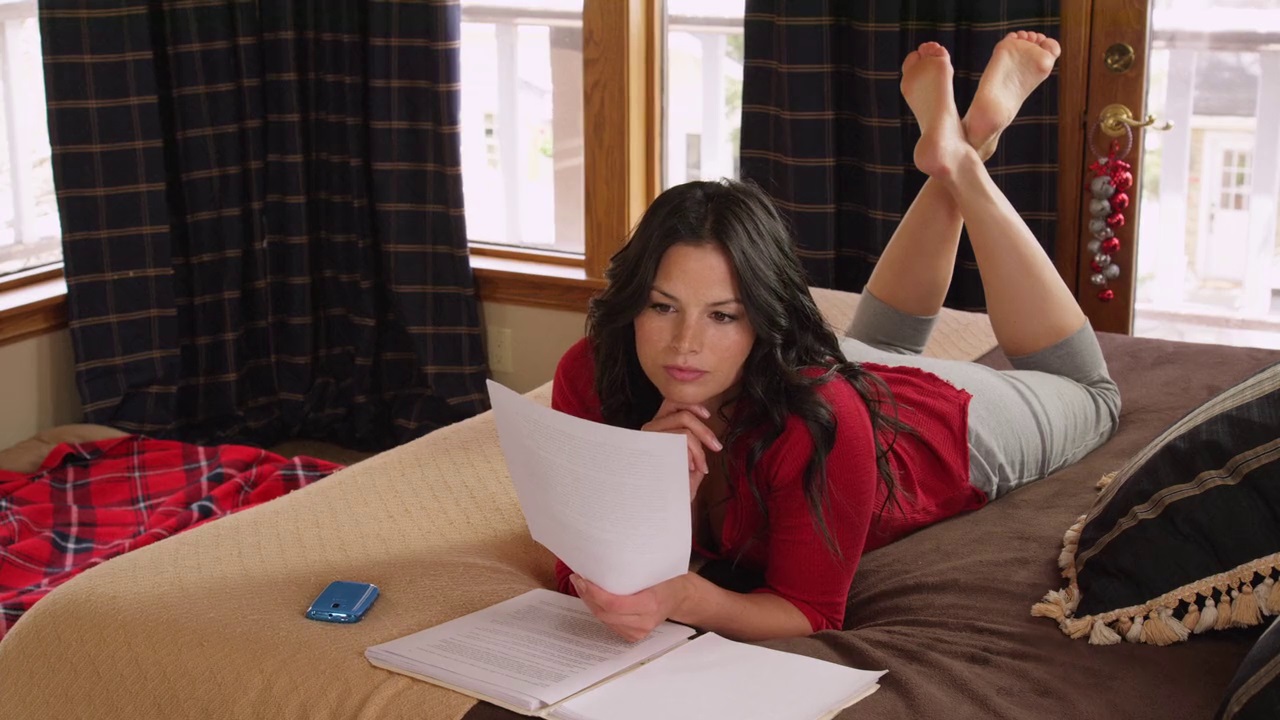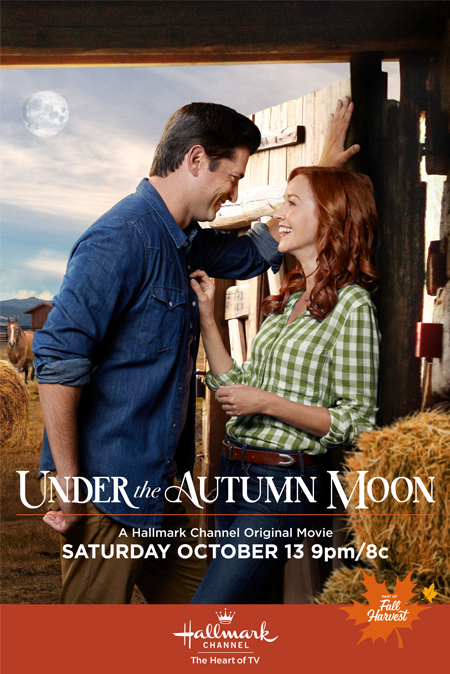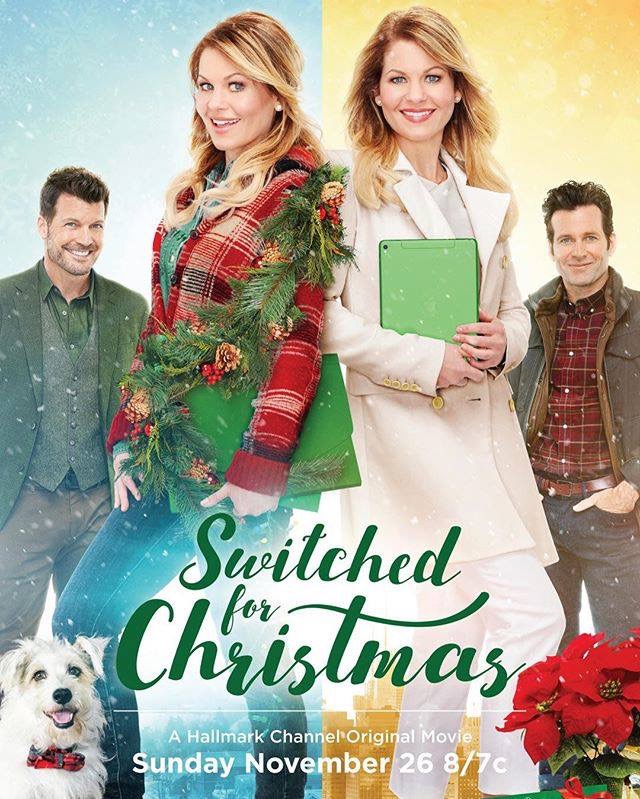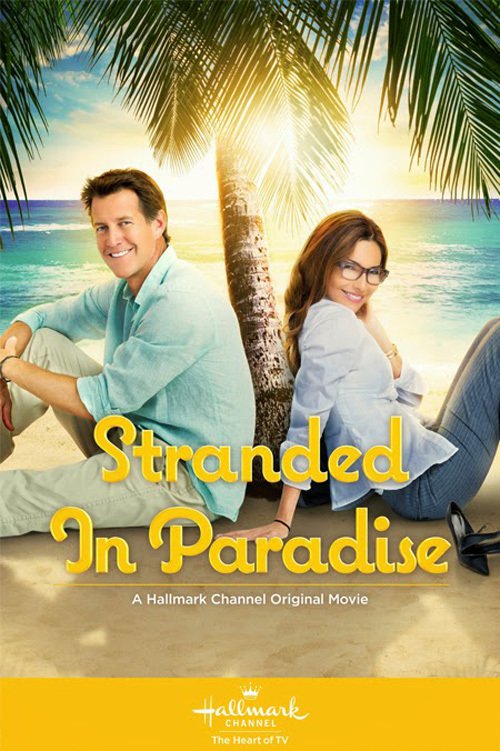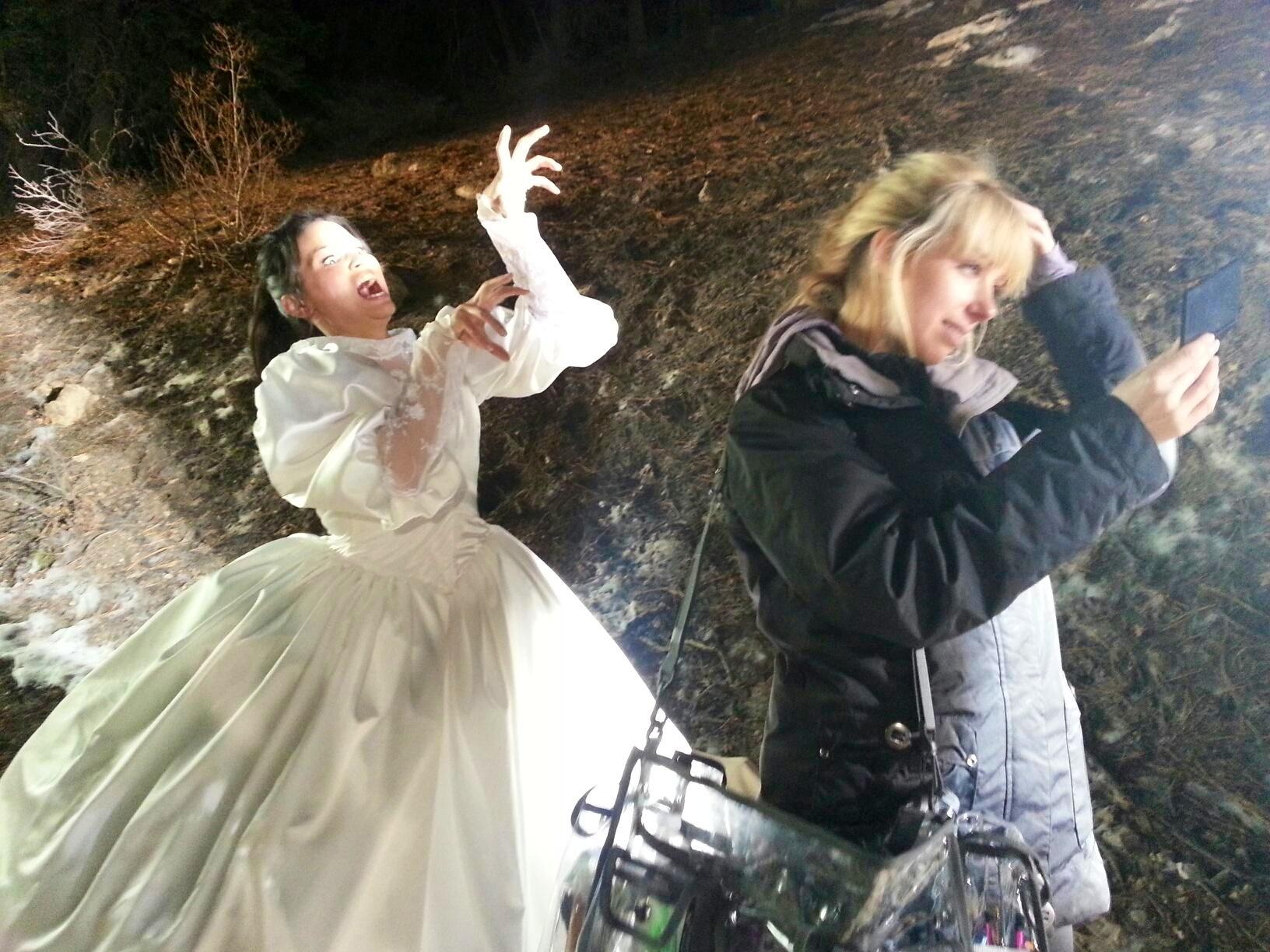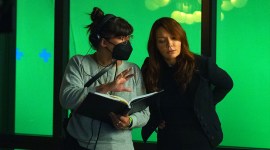
Interview: Tracy Andreen on the Romance of Writing for Hallmark
Love may hurt, but it also sells. The Hallmark Channel produces 90+ holiday and romance films per year, so we sat down with the woman behind the words.
When you think of chestnuts on an open fire, gingerbread houses, and sugar cookies, you think of the holidays. Screenwriter, Tracy Andreen is grateful for the head start that imagery gives her when writing a holiday film. But, at her prolific pace, her work takes so much more skill, craft, and imagination. We sat down for a cup of holiday cheer to unwrap what it takes to make a successful Hallmark Channel holiday screenplay.
PremiumBeat: Tracy, in 2018, you’ve written six produced films for Hallmark, and it’s only November. Clearly you are the most romantic, holiday-obsessed person in the world — or you have a great understanding of Hallmark’s brand of entertainment. What is your secret sauce to success?
Tracy Andreen: Being professional. When given a deadline, I do everything in my power to deliver on that deadline, especially as the time to start production nears. In the realm of TV movies, the windows for delivery can be quite narrow, and there is a whole cadre of other professionals (actors, directors, production supervisors, casting, etc.) who are often times dependent on the writer’s ability to deliver a teleplay in a timely fashion so they can then do their jobs.
As much fun as this can be — and being allowed to be creative for a living is a dream! — it’s also crucial to remember that this is a job and the writer is part of a team working together to create the best product possible. Movies are awesome. Chances are quite good that your readers love them, love storytelling, love the chance to get lost in flickering lights for an hour or two (or twenty, depending on how much binge-watching a person can fit into their day). But making them is unquestionably work, and writers have to put in the hours to be able to execute.
My “secret sauce” is knowing that, and making sure to do my part. Some writers see themselves as artists, and good on them. If they can get a movie made exactly as they envisioned all on their own, congratulations! Otherwise, writers have to learn the fine art of knowing when to compromise and when to speak up for what aspect of the story you believe should remain if/when it’s challenged. I know that sounds dry and crazy un-inspiring, but it’s the truth.
Now, once that’s established, the other part of what I think has helped contribute to my recent success is I just freakin’ love movies! I grew up in a family that loves movies. My dad was a huge movie buff (anyone want to talk John Ford films? Billy Wilder? Howard Hawks? MGM Musicals? — he introduced me to all those and more) so I grew up with what turned out to be a phenomenal unofficial education in cinema. Classics, modern, and all points in-between. Watching all those movies taught me the art of recognizing stories that work — as well as stories that don’t — and learning the rhythm of good dialogue (thank you I.A.L. Diamond, Comden & Green, Nora Ephron, Neil Simon, just to name a few), even if I didn’t realize it at the time. I was just enjoying cinematic stories.
And that’s important. Love of what you do, whatever you do, is the element that has the potential to take you to the next level of your chosen profession because, as my dad once told me, “As long as you love what you do for a living, it doesn’t feel as much like work.” Which might seem like a giant contradiction to the first part of what I just espoused, but it’s not. I love what I do and am beyond grateful for the opportunity to be able to do it, but at the end of the day it’s still work . . . awesome work I love, so I’m thrilled to do so and, hopefully, that shines through.
PB: Writing is not only about inspiration; it is also a craft that takes skill, structure, and discipline. Obviously — since you are so prolific — you must have a system in place that keeps you organized, on message, and on deadline. What is your process? Do you start with an outline? Beat Sheet? Character bio?
TA: Oh, God, “process” . . . Welp, believe it or not in this glorious age of digital, my first step when beginning a new project is to get a notebook (preferably TOPS 8.5 x 11, spiral-bound, college-ruled — and, yes, that’s how picky I can get) and pen (Pentel Energel Alloy gel pen, .5 tip) and make a cup of tea (Earl Grey or English Breakfast with the occasional chai if I’m feeling adventurous) and start writing there.
Aside from the fact that studies show our brains retain more information when read in book or magazine format, and that different parts of our brains “light up” when we write longhand (as opposed to typing up notes or ideas onto our laptops), a big reason I go this route is I feel less obligated to anything I put down on paper than when I see it oscillating back at me on my monitor. I can scratch through an idea and keep going, and if later I think, “Hey, wait, that other idea was pretty good after all,” I can flip back a few pages, locate it, and use it going forward — instead of being annoyed because I sent it into oblivion via the delete button.
Right now, I have boxes and drawers filled with notebooks that go back decades, for projects I’m just spitballing to those that have already aired. If I’ve been given a rewriting assignment, I will read the last draft of the project then the notes from the network/producers and come up with my ideas for solutions then pitch those ideas to said network execs/producers. And what my experience has shown [to be] the best route to those solutions is going through the main characters to find out what’s working and what isn’t. If possible. Sometimes I’m brought in so late in the game that a plot point I would prefer to bypass has to remain because there simply isn’t time to reconfigure everything for a different solution (I’m looking at you “overheard-conversation-leads-to-misunderstanding-and-heartbreak!”).
When it comes to an original story, I usually have a very broad idea first then ponder what kind of story that idea would work best as in order to execute the idea, and almost always by that time the characters have already begun to reveal themselves. Look, writing is weird. I’ve often likened it to managed schizophrenia. Voices chattering in one’s brain, telling you which direction they would like the story to go, as opposed to what you, as writer, initially envisioned. This happens all the time.
On Snow Bride, for instance, I didn’t know that the character of Maggie (played by Patricia Richardson, who is lovely) had basically known the true identity of the character of Greta (played by Katrina Law, who is also quite lovely, and my awesome sister-in-law) the entire time until I was 2/3rds of the way through the first draft! I remember when the epiphany hit, saying to myself (out loud, btw): “Oh! Really? Huh. Of course!” Then I went back and made the (as it turns out, minor) adjustments, so it all made sense.
Same thing happened recently on Under the Autumn Moon when the character of Josh learned that Alex’s company had very different plans for his ranch than what Alex initially told him. My thoughts when approaching that scene were that he’d be angry with Alex, but when I got there the “Josh” voice basically said, “Nope. I believe this woman.” And I went with it because it was true for his character. So, essentially, in terms of process, I can be organized and deliberate in preparation (beat sheets, outlines, etc.), but when it comes to execution, I allow myself the freedom to see what develops along the way (what the characters themselves tell me) and try my best to embrace those ideas when they materialize because they’re often the best.
PB: Hallmark does close to 90 holiday films a year. Can you fill us in on the process from the writer’s standpoint? Do you pitch ideas? Are ideas pitched to you from development, and how does the network go from idea generation to script to production?
TA: At this point, I’ve almost done it all. I’ve had pitches bought, been brought in from the beginning to shape an idea from producers, been hired to adapt books from the start, worked as a co-writer (with Lee Friedlander on three projects now: All for Love, Switched for Christmas, and Love, of Course, which aired for the 2018 Fall Harvest stunt on Hallmark), and done rewrites, both with loads of time and those called “emergency” (when the production is already in place but the script itself isn’t). Emergency rewrites need to take place in a very short amount of time (my record is a page-one rewrite delivered in 3.75 days; I would very much like to keep that as a record I never break, thank you veddy much) and require significant discipline because there is almost no room for error.
On the flip side, I just had an original pitch bought two weeks ago by Hallmark that I’m going to be writing with my friend, Kevin Taft, which I’m very excited about! It’s presently called Hannah’s Honeymoon (titles change a lot), and the hope is that it goes in summer (not necessarily this summer, but a summer). I’m also working on another potential summer movie called Camp Lovestruck, which MarVista brought to me for development. And I have a couple ideas that I don’t think will be bought as pitches, but, rather, I’ll have to execute as specs for them to have a chance (you know, when I find the time!).
PB: If someone wanted to tackle this genre, what tips would you give a writer when they are crafting their idea or spec script? What does Hallmark or perhaps Lifetime and Freeform look for specifically? And do the different networks have different agendas and audiences in mind?
TA: I’ve primarily worked with the Hallmark Channel with a few at Lifetime and one at Up Network. And all networks work hard to know their audiences, passing on the information they’ve acquired to their writers, directors, actors, etc. People tune into The Hallmark Channel and Freeform for very different reasons, and that’s something writers have to keep in mind when approaching a project, be it as a pitch or a last-minute rewrite. As such, it’s my job as writer to familiarize myself with what that network likes, and that means watching their movies. That’s plural, by the way; the bigger your sample size the better.
When I was first approached back in 2013 to come up with an idea for a Hallmark Christmas movie (the producer had a title, I had to come up with the corresponding story, and then the title changed because titles almost always change, but we kept the story), I’d honestly never seen one. But thankfully it was July, and Hallmark does this delightful movie block called “Christmas In July,” and I watched at least 10 in a row (The Most Wonderful Time of the Year is super fun!) so I could familiarize myself with what they liked. Oh, and I took notes. Copious notes. You know that Hallmark Christmas Movies Bingo game that’s been making the rounds the last couple years? I could’ve written that. The challenge for me was how to incorporate those elements — Gingerbread houses! Snow! A Christmas dance! — into a story that was still original and fun, and that ultimately became Snow Bride (2013), a movie that gets a good amount of play even to this day. (I love that one, btw, for a whole host of reasons.)
PB: How involved is the writer in the production itself? When you hand in your final draft, is the process done for you, or are you ever asked to do on-the-fly rewrites or be on set?
TA: Each production is different. The first two movies I wrote (Snow Bride and Stranded in Paradise) were both directed by the same man (the late Bert Kish, who was one of the kindest, most generous people imaginable), and he very much believed in having the writer around to ask questions. Not all directors are like that, though I find the better ones believe in communicating with the writer(s).
Now, the WGA has rules in place that make it so a writer is allowed on-set if they’d like to be, and since I’ve joined the WGA (two years ago), I’ve been invited on every project. The good news/bummer news part of the equation is I’ve been so darned busy (!) writing that I haven’t had time to go to the sets, which have mostly been in Canada. I’m going to try to make a point to get to the set(s) more in the future. That said, there’s really not a whole heckuva lot a writer can do on-location during a three-week production besides get in the way of busy crew and graze the crafts service table (which is never a good idea for someone who works in a profession already known to be sedentary). Most of my work is done before the cameras start rolling, though there are a couple of exceptions when I’ve had to hand in pages after production was already well underway. That was fun. (No, it wasn’t.)
PB: Finally, where do you see the future of this genre? 90 plus stories a year is ambitious! But clearly there is a hungry audience out there if the ratings are any indication. What stories will you tell?
TA: Pretty simple: as long as there’s an audience, these movies will be made. And right now the audience is voracious! There’ve been all sorts of articles written speculating why rom-coms are making a comeback, and specifically Christmas rom-coms are thriving. And the ratings show they are definitely thriving! At a time when almost every other network is seeing declines in their viewers, Hallmark Channel is soaring! I don’t think there’s one specific reason but a convergence of several. They’re safe at a time when the world doesn’t really feel safe. You can watch them with your whole family and not have to worry that something uncomfortable is going to slip in and cause you to have to have awkward conversations. Also? (And this is a big one in my mind.) People love love. Always have, always will. Love stories have been around since the beginning, but the cineplex marketplace isn’t providing love stories anymore, especially romantic comedies, so the viewers who crave them — and there are millions — have turned to the TV movie to feed their appetite. Hallmark Channel recognized this early and leaned into it, hard, and has been greatly rewarded for it in return.
As for what stories do I have to tell? Quite a few, I hope! I’m presently doing a rewrite for a Valentine’s Day movie and a revision for a 2019 Christmas film that I hope goes into production in the first quarter of next year. Behind that are several projects (a couple mentioned above) bubbling about in development and far more ideas behind those, so I hope to keep busy for the foreseeable future. As long as people keep devouring romantic movies, and I keep delivering for the people who hire me, I plan to keep right on working because this really is a dream job.
Fingers crossed!
Looking for more industry interviews? Check these out.
- Screenwriter James V. Hart on Career, Coppola, and Creating a Method
- Jonah Hill on Writing and Directing Mid90s — and Tips He Learned from the Greats
- Industry Interview: Advancing Your Career from PA to AD
- Interview: Jennifer Gatti on Bon Jovi, Star Trek and Longevity in the Business
- Interview: Julie Benz on Work Ethic, Challenging Roles, and Paying it Forward



